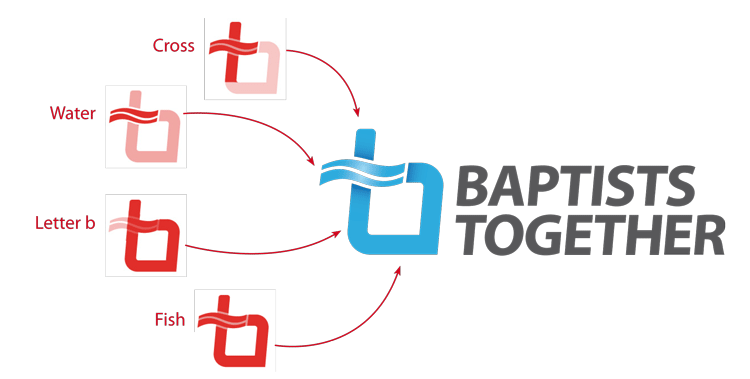Branding, ambition and reality
What does it really mean to be Baptists Together, asks Michael Shaw?
Many years ago I used to work as a Marketing Manager for an International software company. Every so often our corporate headquarters in Washington DC would issue a new strap-line to go under the logo, followed by the new corporate instructions on what this meant. What it meant for me was spending ages getting all of our marketing leaflets reprinted and getting all of our, now out of date, headed paper recycled!

It was easy for all of us in the UK to be cynical about what the head office was doing, because frankly some of the reasons for the change were always a little weird. We now face a new future as Baptists under the header Baptist Together. I have to say there has been the usual sceptical reaction to the explanation of what the logo and the new branding might mean, and I cannot deny my guilt as well.
The key thing with all of these changes is simply this: does it reflect a reality on the ground, or is it an ambition? A few years ago I was involved in a Baptist project called re:Source Bristol. Its intentions were excellent: it sought to solve the problem found in many cities where large Baptists churches were often found in areas of affluence, while inner city or sink estates often were the home to small, often elderly and severely under-resourced Baptist churches.
To be honest, for all of its successes there were also a number of failures. What can account for the failures? A simple inabilty for churches to look beyond their own boundaries. The smaller churches perceived help with suspicion and were worried they would lose their identity, while the larger churches were often more concerned with their own problems than that of their smaller neighbours.
I have now been in Plymouth for just over a year now, and while some churches have been helpful, the reality is that I see very little of most of the other Baptist leaders. How are we supposed to be Baptists Together if the leaders do not have a relationship? Plymouth is not a huge city, and there are not that many Baptist churches, yet in a year of being in the city only once have a substantial numbers of leaders gathered together, despite a weekly opportunity to do so.
Also, in a year I am yet to receive a single invite to preach in any other churches in Plymouth. I preached away this weekend - in Surrey! How can we possibly consider ourselves to be Baptists together?
If the change of name is to be any thing more than marketing speak, if we are going to learn from the upheaval that we have been through as a denomination, we need to take this fresh opportunity to not just "network" together, but relate to each other. This is the time to do that, we cannot just continue to live in alienation from each other.
The Revd Michael Shaw is minister of Devonport Community Baptist Church, Plymouth
Related:
Money - and how we use it. Why do we allow some of our least resourced churches to struggle in some of the most deprived areas?
Michael Shaw, 18/10/2013